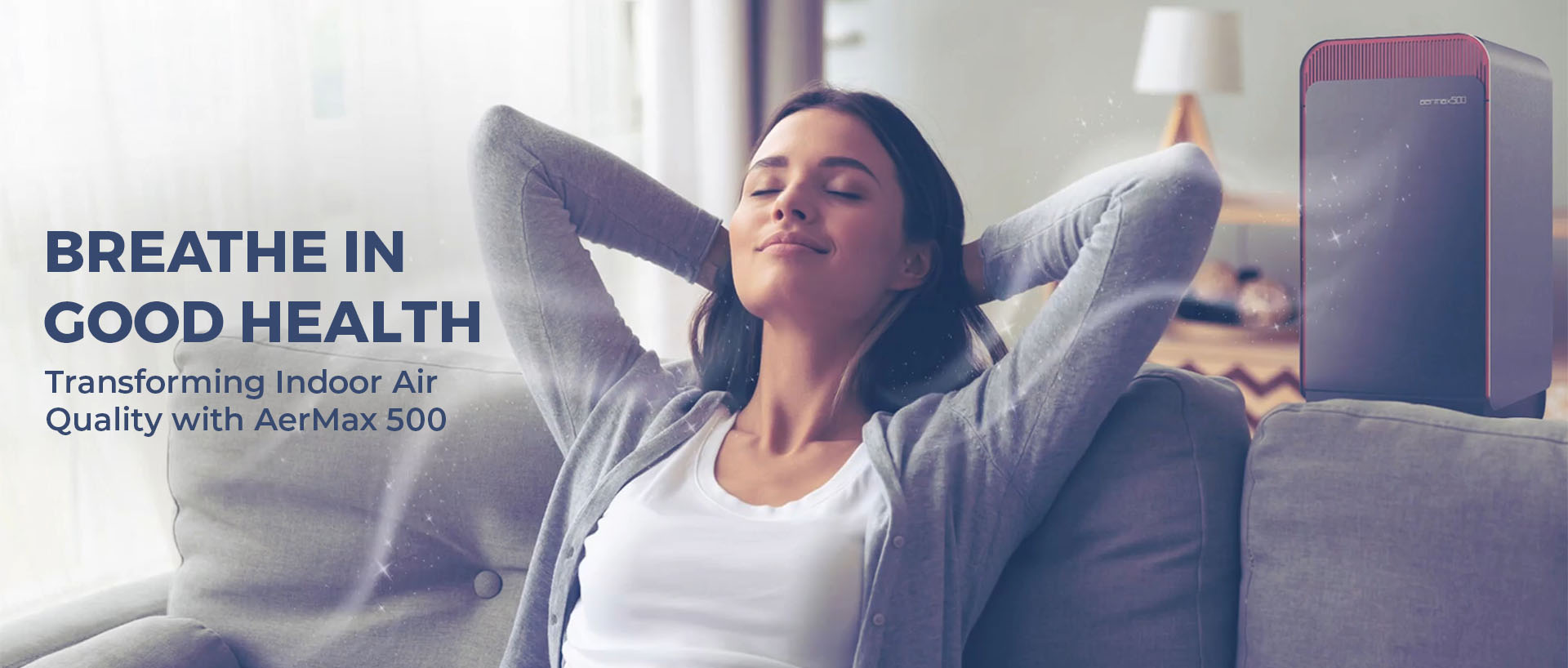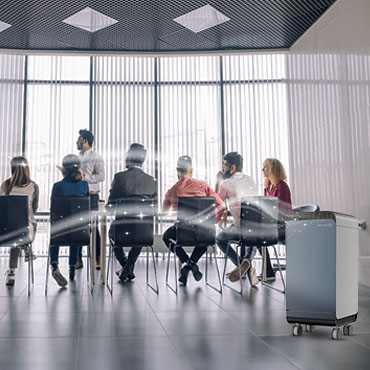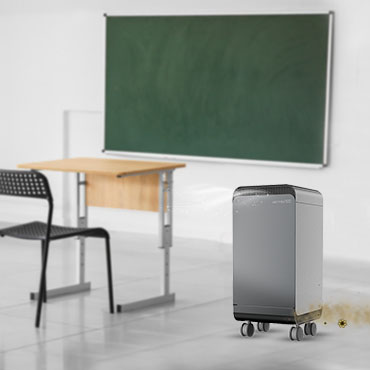Air Purification in the times of COVID-19
With the fear of COVID-19 looming, everyone is looking for ways to mitigate the risks at homes, offices, schools, and other public settings like malls, hospitals, restaurants, gyms, dental clinics, and even salons. Employers are looking for ways to initiate and optimize operations at the work place itself.
Air Purifiers and heating, ventilation, and air conditioning (HVAC) filters can help mitigate the risk associated with airborne contaminants including viruses in buildings and commercial spaces Although air cleaning and filtration play a key role in themselves, it does not suffice alone. Mask adoption and social distancing in closed crowded settings are also key to preventing the transmission of airborne contaminants.
Air filters are designed to filter pollutants and particulate matter from the air that passes through them in an indoor setting. This can help reduce airborne contaminants, including particles containing viruses from the air that we end up breathing.
For an air purifier to be effective in removing viruses from the air, it must be able to remove airborne particles that are as small as 0.1-1 um. An air purifier must be the right size for the space it will occupy and it should be a HEPA unit. The fact that HEPA filters are able to remove tiny virus particles like COVID-19 stands tall because the floating rationale of them operating like a net is incorrect.
The mechanism by which filtration occurs boils down to the size of the particulate matter; inertial impaction, interception, and Brownian diffusion are the three ways it takes place. The efficiency of each different principle mechanism depends on the size of the air-borne particles, where particles larger than 0.3 µm obey inertial impaction and interception and shows higher efficiency. When it comes to particles smaller than 0.3 µm, Brownian diffusion exhibits higher efficiency. This shows that any particle that lies below the range of 0.3 µm can easily be captured through Brownian diffusion. Hence, not only air-borne viruses but any particles less than 0.3 µm can be easily captured by HEPA filters.
Size of virus! Does it matter?
No! The size of the virus does not play a major role. Indeed, viruses usually range from 0.1 to 0.2 µm in size (SARS CoV -0.125 µm) although they often cluster or attach to larger particles in the air stream. This aspect can be related to the virus generally requiring a carrier to activate itself like water droplets that surface from coughing or sneezing. They can also attach to any other form of microorganism like bacteria that travel in the air. This makes HEPA filters capable to capture particles of virtually all sizes, even those as COVID-19.
Air Purifiers and Filters in Offices, Schools, and Commercial Buildings
Schools, offices, and commercial spaces like malls, restaurants, movie theaters, gyms, clinics, etc. must consider upgrading HVAC filters as appropriate for the specific building. The variety and complexity of HVAC systems in large buildings require professional interpretation of technical guidelines which are provided by large filter manufacturers as an audit service. It is recommended to upgrade air filters to the required efficiency that is compatible with the system and check the filter fit to minimize air filter bypass.
Portable air cleaners should be considered to supplement increased ventilation and filtration, especially in areas where adequate ventilation is difficult to achieve. Air Purifier like the Aermax 500 eliminates 99.97% of viruses, ultrafine particles, odour and VOCs offering clean, sterile indoor air. The “Trueshield HEPA” filter has 8-10 times more filter media than a domestic air purifier making it best suited to safeguard busy spaces.
Purifiers with negative ion technology, ozone generators, UV, electrical ionization, and catalytic oxidation tend to generate ozone, hence, these should be avoided in occupied spaces as they are not safe and can irritate the airways. The use of air cleaners alone cannot ensure adequate indoor air quality, particularly where significant pollutant sources are present and ventilation is insufficient.
Air filters should be replaced regularly. The frequency of replacement will depend on the type of filter and the level of contamination in the air. Using multistage air filters in series can help to improve IAQ by providing multiple levels of filtration. In addition to using air filters, it is important to keep the HVAC system well-maintained to ensure it is operating efficiently and effectively. This may include cleaning or replacing air filters, cleaning ducts and vents, and performing regular maintenance on the system.
While air filtration can reduce the concentration of virus particles in the air, it is important to remember that it is just one part of a comprehensive approach to preventing the spread of COVID-19. Other measures, such as wearing masks, maintaining physical distance, and frequently washing hands, are also important in reducing the risk of infection and this is why they ought to be followed in conjunction.




